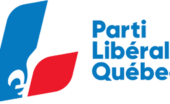Johannah Bernstein post: "eternally proud of my father’s extraordinary aeronautical engineering. legacy. here is a photo of the Canadair Water…
Wednesday Night #1996
Written by Diana Thebaud Nicholson // June 17, 2020 // Wednesday Nights // Comments Off on Wednesday Night #1996
Today is UN Security Council vote day. Canada is vying with Ireland and Norway for one of the two non-permanent seats reserved for the WEOG (for those not up on UN-speak that would be the Western Europe and Others regional grouping). The votes are conducted by secret ballot and countries have to secure a two-thirds majority to win. If Canada does not secure that majority on the first round it will have to battle it out until a winner emerges. The process could be tied up swiftly in Thursday’s second round of voting, or it could drag on. In 1979 it took 155 rounds to fill a seat. So be prepared.
UPDATE: Canada loses its bid for seat on UN Security Council
Despite an intense and costly diplomatic push, Canada has lost its bid for a coveted seat on the United Nations Security Council.
Norway and Ireland won the two available temporary seats, with 130 and 128 votes respectively. Canada won 108 votes, falling 20 short of the 128 needed to win a spot at the table.
It’s a heavy blow for Prime Minister Justin Trudeau, Foreign Affairs Minister François-Philippe Champagne and other high-level officials who had been reaching out to political leaders around the world in a campaign to secure one of the two available rotating seats.
The campaign has been intense (The lengths countries go to for a seat at UN top table), with the PM conducting a phone blitz of leaders of UN members while the team in New York, led by Ambassador Marc André Blanchard, has been pressing the case on the ground, as it were.
The problem is that what Canada brings to the table, the values it represents, the issues it pledges to push once it gets to the Security Council are not always factors for countries when they are considering who to support. Sometimes the thinking behind the vote is much more superficial. Richard Gowan of the International Crisis Group put it succinctly:
“About 60 out of 190 states in the organization vote purely on the whim of their ambassadors in New York, and those ambassadors often promise their votes to all three candidates, and no one is quite sure who is telling the truth to whom”.
Opinion in Canada is sharply divided between those who believe that the seat is a worthy goal (Westdal: Here’s why Canada should win a UN Security Council seat and Colin Robertson: UN Security Council election win could boost Trudeau’s international capital ); others endorse Jeremy Kinsman’s more measured position that a non-permanent seat is not as influential as claimed, given that the agenda is set by the permanent members who also have the right of veto. Finally, Canada has a tough fight against two extremely popular opponents who have made consistent contributions to development (Norway) and human rights/peace keeping (Ireland), whereas Canada does not have an equivalent track record.
Andrew Caddell has expressed similar skepticism, citing the fact that , “we have not changed our approach to a number of key issues at the UN, nor have we endeared ourselves to the so-called G-77, the 133 developing nations (plus China) that hold the power at the UN.”
Black Lives Matter. Indigenous lives matter.
The horrific murder of George Floyd has had consequences unlike any other disgraceful, racist, violent, police action that we can remember, including at Wednesday’s UN Human Rights Council’s urgent debate on police brutality and systemic racism in the US. Protests in cities across the U.S. have been mirrored around the world. Corporations and media are publicly disowning past practices and vowing to reform. There is an outcry to defund the police – the subject of Andrew Caddell’s column Defund the police? More like re-think how we fund them in the Hill Times this week.
The powerful American police unions are under attack. And, following the Lafayette Square débacle, senior military figures have distanced themselves from the White House discourse.
Why now? Is the force of the movement due, as Rebecca Bellan suggests in Forbes, to Generation Z’s use of social media? Bill McKibben’s discourse on civil disobedience and its uses in authoritarian states makes for very interesting reading.
Covid-19
As economies are re-opening, and Trump plans a massive indoor rally in Tulsa, the grim tallies continue: Coronavirus leaves more Americans dead than First World War and in China, Beijing worries about a second wave
However, as we await the inevitable spikes/second wave there is some good news about The race for a vaccine
Scientists at Imperial College London will start the first clinical trials of a potential COVID-19 vaccine this week while In Singapore, scientists testing a vaccine from U.S. firm Arcturus Therapeutics plan to start human trials in August after promising initial responses in mice, and More than 100 potential vaccines are in development around the world.
U.S. political scene
“By any objective standard, the president’s prospects for reelection are looking down. Joe Biden is continuing to lead him in trial heats nationally (by 8.1 percent in the latest RealClearPolitics averages) and in most battleground states. The president’s job approval numbers are lower than they’ve been since last December. People are still very afraid of COVID-19, and despite one good monthly jobs report, the economy is still in the ditch, with unemployment higher than at any time since the 1930s” [and a number of Republican figures expressing concern about the outcome of the November elections]. Still, Trump Supporters Act Like His Election Is Certain; the fifth of Ed Kilgore’s theories as to why this is so is chilling.
Observers warn that that the White House is launching ever more vicious new strategies (See Mike Pence’s deceptions unmask Trump’s dangerous reelection strategy) and a doubling down on the lies, attacks on president Obama’s legacy, all accompanied by executive orders designed to set the country back some 70 years.
An entertaining sideshow is the fight over the publication of John Bolton’s book and the anticipated uproar over Mary Trump’s tell-all insider’s look at la famille Trump. Today’s juicy item on the Bolton book Trump asked China’s Xi to help him win reelection
There is good news, however, from -of all places- the Supreme Court. The surprising decision on LGBT rights joined by Neil Gorsuch and John Roberts was a bright spot in an otherwise gloomy US landscape.
If all of the above is not enough to worry about, there is always North Korea ; the locust swarms decimating Africa, Asia and Middle East (who knew that there is a locust forecasting expert for the FAO?); and the Brookings piece on China’s Indian Ocean ambitions – which echoes many of Cleo’s concerns.
Bless the Washington Post for enabling us to end on a lighter note with these nuggets:
The pandemic has separated people. Science suggests this may make their hearts grow fonder and its companion piece There’s a loophole along the closed U.S.-Canada border. Couples are getting married there.
We should also note that the Thomas More Institute webinar with Julius Grey last Friday was excellent – for those who missed it, it is now on YouTube at https://youtu.be/sWFlCjmV1jU
And, finally, keep the images of A Rare White Baby Reindeer in your mind’s eye to ward off all the ugliness (and to keep you cool in the current heatwave).



